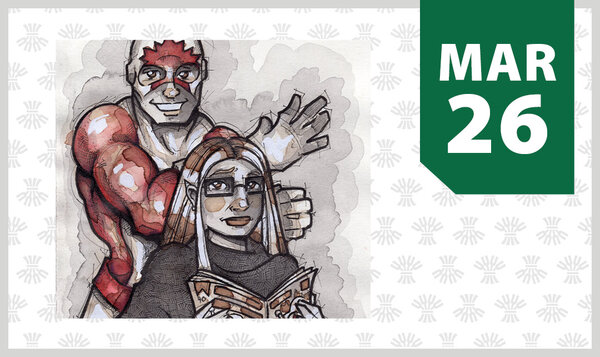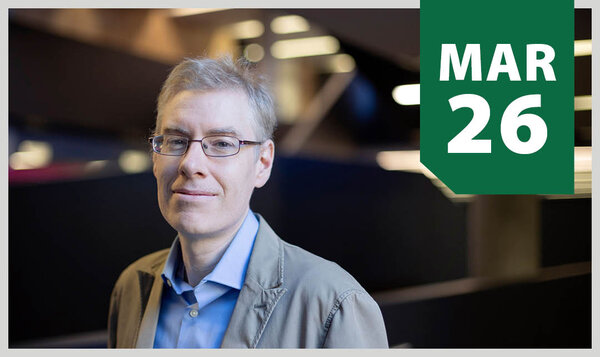
Love of language leads USask student to complete linguistics degree
Rhiannon Caswell will receive the University Medal in the Social Sciences during USask's 2021 Fall Convocation
By Shannon Boklaschuk
Rhiannon Caswell is ending her undergraduate journey at the University of Saskatchewan (USask) on a high note.
This November, during USask’s 2021 Fall Convocation, Caswell will receive her Bachelor of Arts degree in linguistics with Recognition in French. She is also one of the top graduates in USask’s College of Arts and Science and will be honoured as the recipient of the University Medal in the Social Sciences.
“It feels exciting and I’m very proud of myself for all that I’ve accomplished so far,” she said.
Caswell, who was born and raised in Swift Current, Sask., began her studies in the College of Arts and Science after graduating from Swift Current Comprehensive High School in 2016. At the time, she wasn’t sure which major she wanted to pursue.
“I knew I wanted to do something related to language, but I didn’t know I wanted to study linguistics until after I took LING 110 in my second year,” said Caswell. “Since switching into the linguistics program, I have taken lots of LING courses that have all been so interesting to me, and I love that there are so many different subfields and directions that you can go within the broader field of linguistics.”
Throughout her undergraduate studies, Caswell participated in a variety of extra-curricular activities. For example, she was a member of the USask Wind Orchestra for three years, under the direction of Dr. Glen Gillis (PhD), playing both flute and percussion. She has also been training in Taekwondo for the last five years and has earned her red belt/black stripe, with the goal of earning her black belt.
Earlier this year, Caswell presented some of her undergraduate research at the virtual APALA student conference, hosted by the Archaeology & Anthropology Students Association (AASA). Caswell decided to present at the conference after being encouraged by her sister, an AASA executive member and conference organizer.
“The research that I chose to present was from a paper written for LING 402: Language and Culture. My presentation was titled ‘Linguistic Taboo and Euphemisms: How We Navigate Tough Topics Through Language’ and I focused on two prevalent taboos in Western society: mental illness and death,” said Caswell.
“Presenting at APALA was a great opportunity to be able to share my research at a conference for the first time and practice my presentation skills, as well as to engage with some of the research of other students.”
Caswell has fond memories from her time as an undergraduate student in the Department of Linguistics. In particular, she enjoyed the class LING 243: Morphological Patterns in Language, taught by Dr. Jesse Stewart (PhD).
“As a class, we had the opportunity to work with a language consultant and get hands-on experience with morphology,” she said. “Each student was assigned a specific feature to look for and we spent several weeks eliciting sentences from our consultant to eventually be able to identify and describe that feature in the language. It was a very interesting and fun experience.”
In September, Caswell began a Master of Arts degree in applied linguistics at USask. In addition, she is serving as a teaching assistant for a first-year linguistics course.
“I chose to pursue a master’s degree because I want to contribute to research in a subject area that I am passionate about within a field that I excel in and enjoy. I was also encouraged to consider pursuing an MA by some of the faculty in the department, which was the vote of confidence I needed to decide to go for it,” Caswell said.
“I plan to focus my graduate research on conceptual metaphors for eating disorders and eating disorder recovery on social media. As someone who has struggled with an eating disorder and continues working on recovery every day, as well as known people close to me who have struggled, this is a subject that I am very passionate about. My hope is that research into the way people use conceptual metaphors to describe their eating disorders and their recovery might dispel some of the stereotypes and provide a better understanding for those who haven’t lived it themselves.”
For Caswell, the best part of studying at USask “is how many opportunities there are to try something new and the wide variety of programs and courses available.” She is also appreciative of “the beautiful campus” and its close proximity to her family.
Now that her undergraduate degree is complete, Caswell has some words of advice for new USask students: take the time to try something new and explore your interests.
“Also, make sure to break up a heavy class schedule with a fun elective when you can; having that one fun class to look forward to every week makes a huge difference,” she said.


